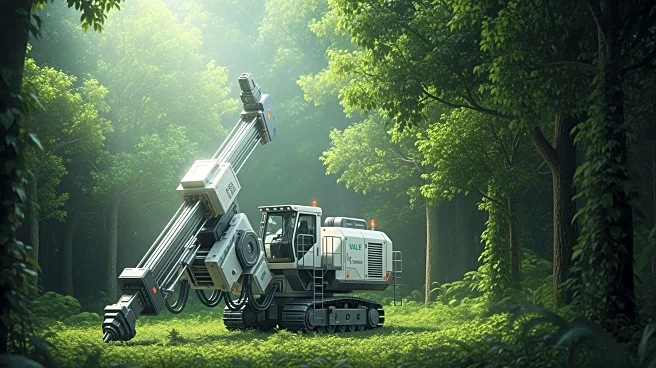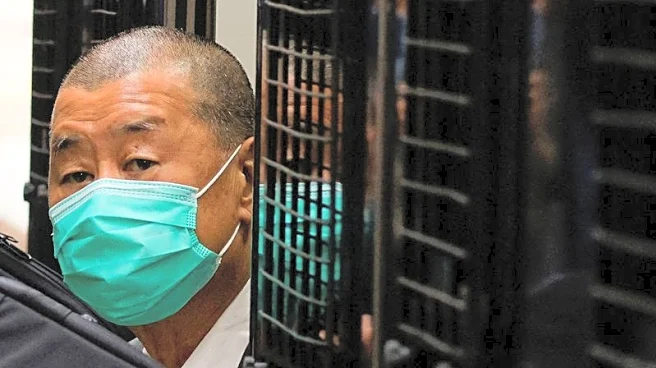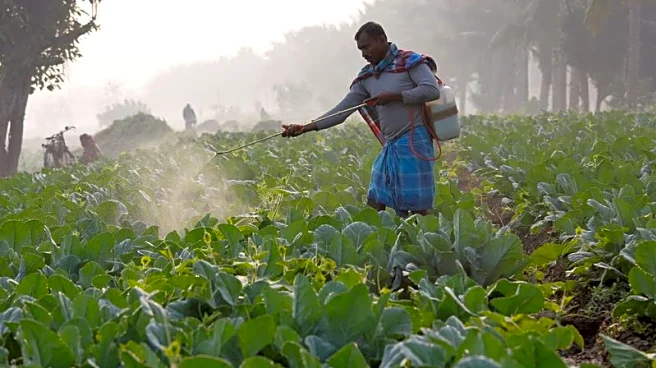What's Happening?
In the Amazonian state of Para, Brazil, the mining industry is experiencing a significant transformation as major firms like Vale implement advanced technologies. Vale, a Brazilian mining giant, operates the Carajas mine, the world's largest open-pit
iron-ore mine. The company has introduced driverless trucks and artificial intelligence to enhance operational efficiency, planning to invest 70 billion reais ($13 billion) between 2025 and 2030. This technological shift contrasts sharply with the artisanal miners, known as 'garimpeiros,' who continue to search for gold in the Serra Pelada mine, a site famous for its 1980s gold rush. Despite the closure of Serra Pelada in 1992 due to flooding, many miners still hope to find fortune there. Meanwhile, illegal gold mining in the region has led to environmental degradation, including deforestation and mercury pollution.
Why It's Important?
The developments in Para highlight the broader implications of technological advancements in the mining industry. Vale's use of autonomous technology not only increases efficiency but also sets a precedent for sustainable practices by pledging to preserve vast areas of forest. This approach could serve as a model for balancing economic growth with environmental conservation. However, the persistence of illegal mining underscores ongoing challenges in regulating the industry and protecting the Amazon's ecosystem. The disparity between large-scale operations and artisanal miners also raises questions about economic inequality and the future of traditional mining communities.
What's Next?
As Vale continues to invest in technology, the company may face increased scrutiny from environmental groups and local communities concerned about the impact of mining on the Amazon. The Brazilian government and international organizations might also play a role in addressing illegal mining activities and promoting sustainable practices. The upcoming COP30 United Nations climate talks in Belem could provide a platform for discussing these issues and fostering collaboration between stakeholders to ensure the protection of the Amazon while supporting economic development.
Beyond the Headlines
The situation in Para reflects broader global trends in the mining industry, where technological innovation is reshaping traditional practices. The ethical implications of these changes, particularly concerning labor rights and environmental stewardship, are likely to become more prominent in public discourse. As companies like Vale lead the way in adopting new technologies, they may influence industry standards and regulatory frameworks worldwide, potentially driving a shift towards more sustainable and equitable mining practices.
















